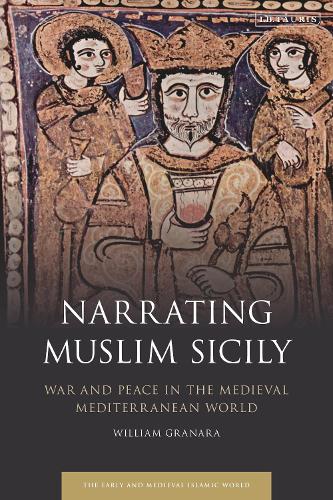
Narrating Muslim Sicily: War and Peace in the Medieval Mediterranean World
(Paperback)
Publishing Details
Narrating Muslim Sicily: War and Peace in the Medieval Mediterranean World
By (Author) Prof. William Granara
Bloomsbury Publishing PLC
I.B. Tauris
25th March 2021
United Kingdom
Classifications
Tertiary Education
Non Fiction
Social and cultural history
305.6970956
Physical Properties
Paperback
240
Width 156mm, Height 234mm
345g
Description
In 902 the last Byzantine stronghold in Sicily fell, and the island would remain under Muslim control until the arrival of the Normans in the eleventh century. Drawing on a lifetime of translating and linguistic experience, William Granara here focuses on the various ways in which medieval Arab historians, geographers, jurists and philologists imagined and articulated their ever-changing identities in this turbulent period. All of these authors sought to make sense of the island's dramatic twists, including conquest and struggles over political sovereignty, and the painful decline of social and cultural life. Writing about Siqilliya involved drawing from memory, conjecture and then-current theories of why nations and people rose and fell. In so doing, Granara considers and translates, often for the first time, a vast range of primary sources - from the master chronicles of Ibn al-Athir and Ibn Khadun to biographical dictionaries, geographical works, legal treatises and poetry - and modern scholarship not available in English. He charts the shift from Sicily as 'warrior outpost' to vital and productive hub that would transform the medieval Islamic world, and indeed the entire Mediterranean.
Reviews
Woven together from historical, geographical, literary, and legal sources, Narrating Muslim Sicily is an intricate and fascinating account of a medieval civilization lying on the frontier between Islam and Christendom. William Granara brilliantly teases out the different ways that Arabs and Muslims viewed the island from eyewitnesses of the golden years of Sicilys Islamic period, to later poets and scholars who reimagined its history. At the heart of Granaras groundbreaking book is a subtle argument: that while all of these sources collectively constituted a zone of contradiction, they nevertheless consistently appealed to the concept of jihad as a tool to extract meaning from Muslim Sicilys unique experiences. * Robert Wisnovsky, James McGill Professor of Islamic Philosophy, McGill University, Canada *
an invaluable resource for specialists in medieval Sicily, and invites more general readers into this rich literary world * Joshua C. Birk, Associate Professor of History, Smith College USA. *
Author Bio
William Granara is Gordon Gray Professor of Arabic and Comparative Literature at Harvard University, where he is also the Director of the Center for Middle Eastern Studies. He has published widely on medieval Arabic literature and translated several novels from Arabic to English.
